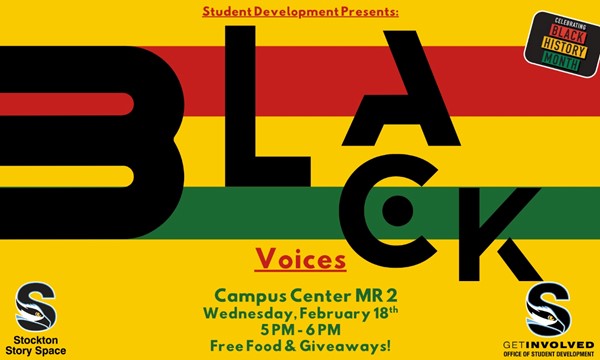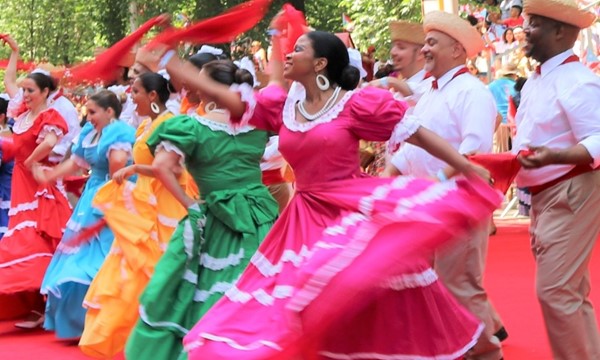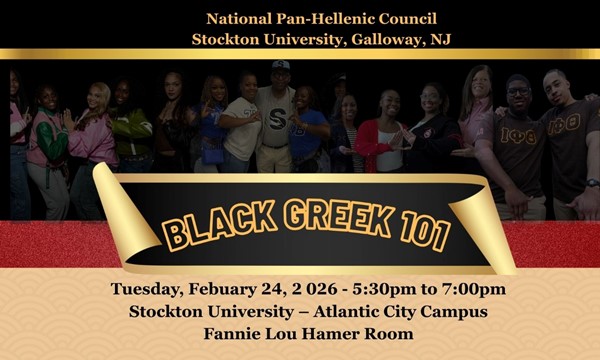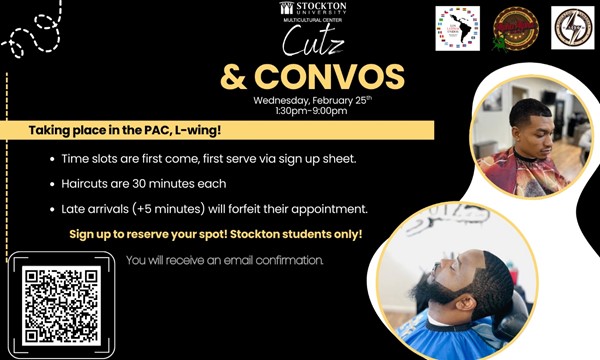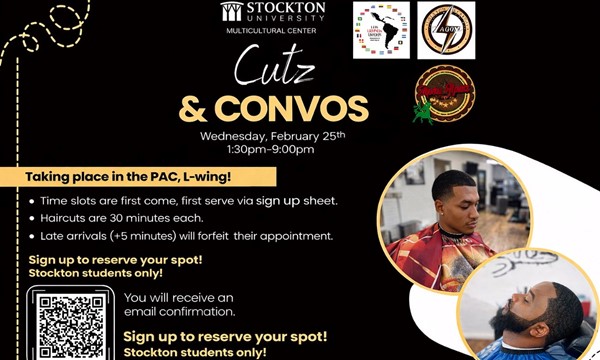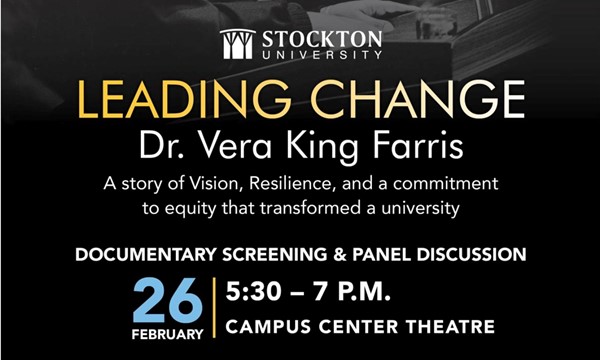Transcending Spaces with Black Joy & Excellence

A panel discussion centering on Black joy and excellence took place in the Multicultural Center on Thursday, Feb. 6. The panelists included (L-R) Saleana Pettaway (adjunct professor of Dance), Terricita Sass (Stockton University's executive vice president and chief of staff) and Donnetrice Allison (chair of the Africana Studies program).
Galloway, N.J. – In celebration of Black History Month, a Feb. 6 panel discussion with students, faculty and staff in the Multicultural Center became a lively conversation on the Black lived experience and the role that resilience, joy and excellence play in it.
Guivenchiali Saint Jean, a second-year student in the Environmental Science & Africana Studies programs, and Timaya McGowan, a second-year Accounting major, served as the evening’s moderators and asked the panelists questions such as “What does Black excellence mean to you?” and “How has your African American identity shaped your leadership experience?”
💬 PANELISTS
- Terricita Sass, Stockton University executive vice president and chief of staff
- Donnetrice Allison, professor of Communication Studies and chair of the Africana Studies program
- Saleana Pettaway, adjunct professor of Dance
- Marques Johnson, associate dean of students
- Elizabeth Macklin, club president for the Unified Black Student Society
- Nasir Terry, student senator and member of the MC Prep Team
In one of his answers, panelist Marques Johnson, associate dean of students, talked about a student who called him while writing an essay for fellow panelist Donnetrice Allison’s Africana Studies course.
Despite occurring at 10 p.m., the call itself wasn’t what shocked him the most – it was the student’s excitement and eagerness to share what he learned in her class.
“In a way, I was able to experience her excellence and how it showed up in that classroom from seeing what it did for him,” Johnson said. “(The student) came from a place where… one of his parents didn't want him to come to Stockton because of some of the race-related courses we offer.
“But after experiencing those courses here, he declared an Africana Studies minor because of her Black excellence in that program,” Johnson continued. “It transcends all spaces, and that's what it means to be Black and excellent: we all get to benefit from it, and we all have a responsibility to pay it forward.”
Nasir Terry, a Political Science junior who works as a peer educator in the Multicultural Center, shared his at first complicated relationship with leadership. When he saw Black leaders in the media, he saw how challenging the journey to the positions they held was and found himself shying away from the spotlight because of it.
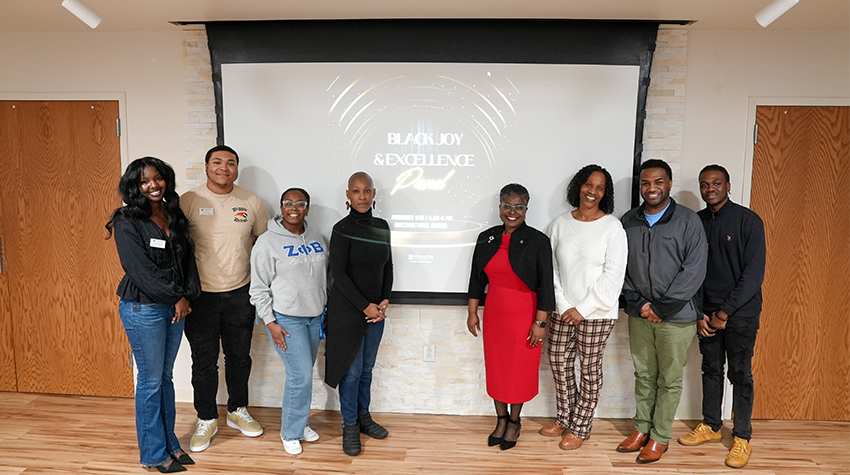
He has since had a change of heart, saying, “Now that I'm in positions that I am in, I really had to instill in my brain that, as a Black man, I have the opportunity to change so many young men’s lives in the future. I kind of wear my Blackness wherever I go, just so I can help show young children that you can be whatever you want to be.”
In a similar vein, Elizabeth Macklin – a senior Criminal Justice major – shared that experiencing the culture shock of attending a predominately-white institution after being raised in multicultural schools made her introverted. She expressed gratitude for the fact that she isn’t anymore.
“As a little freshman, I kind of shied away from my Black identity because I just didn't want to be noticed here,” Macklin said. “But then, I was like, ‘That’s not me, though.’ Even though I was a little shy, I figured someone else was, too. I was like, 'Okay, let me go to this meeting,’ which led to me eventually becoming club president (Unified Black Student Society).”
Further Panel Insights
MCGOWAN: What does Black excellence mean to you?
DONNETRICE ALLISON, chair of the Africana Studies program: I would say, striving for our best no matter the circumstances and just pushing, pushing and pushing forward. To me, one of the things that is just so key for Black people is taking lemons and making lemonade – being able to take one thing and make something beautiful and good from it. I think that we are very much known for doing that. That's Black excellence.
TERRICITA SASS, executive vice president & chief of staff at Stockton: Sometimes, when we talk about excellence, people get in their heads that that means they can't make mistakes, and they have to be always 100% there, but it’s not perfection: it's the maximization of whatever your gifts and talents are. How do you maximize and leverage what you're really good at, or even what you want to be better at?
SAINT JEAN: Who are some black figures, historically or now, who inspire you and why? How did they influence your definition of Black excellence?
SALEANA PETTAWAY, adjunct professor for Dance: My mentor, Dr. Kariamu Welsh. She was the creator of the Umfundalai (Swahili for “essence”) dance technique. I would give her all the honor in terms of me even being here today to speak with you. It's because of the technique she created through her dance company and her scholarship that she paved the way for a lot of artists, including myself.
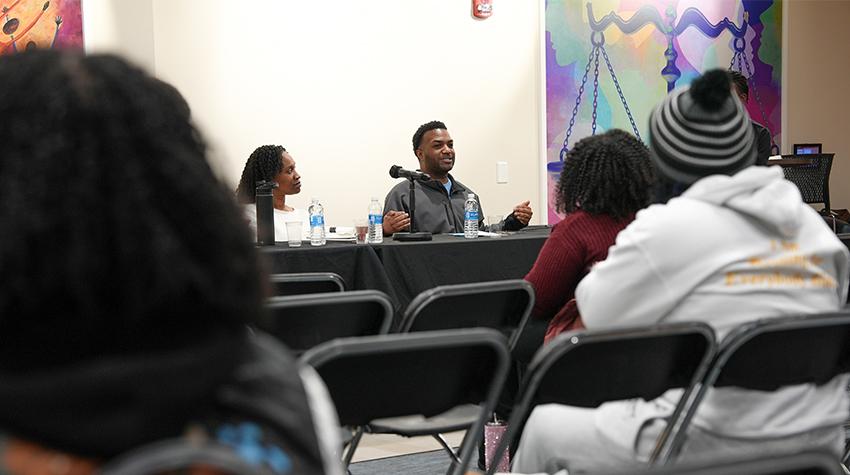
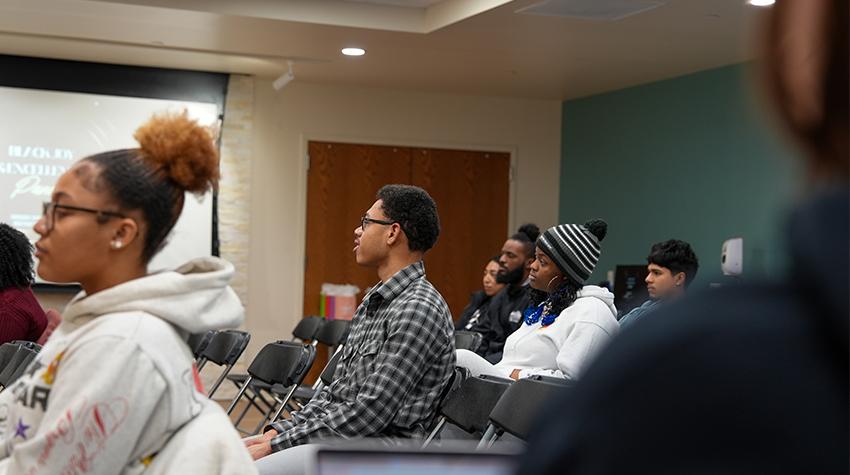
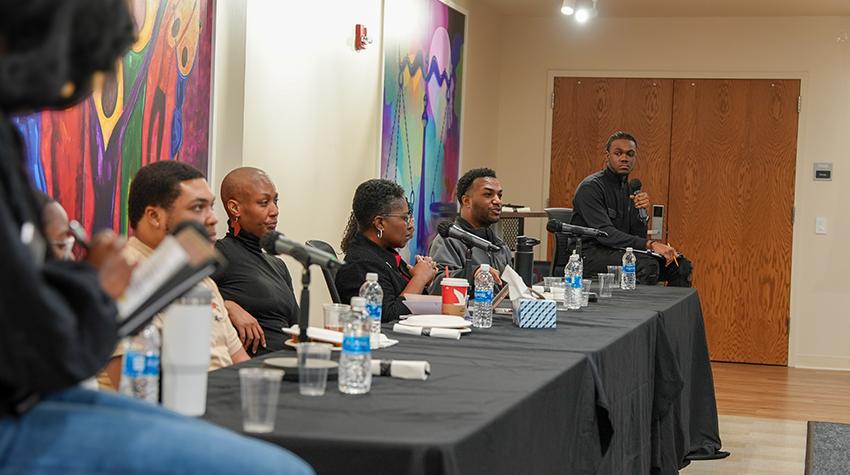
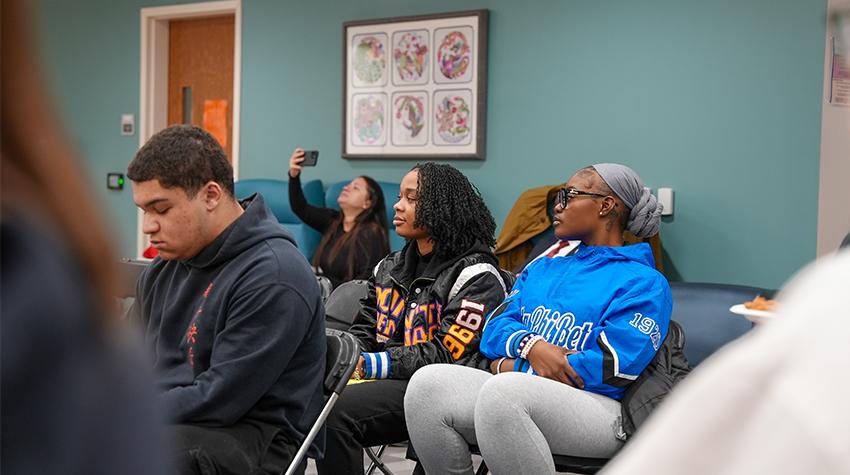
MCGOWAN: Do you have any closing words of wisdom for the crowd on Black excellence and leadership? What do you want to leave the audience with?
JOHNSON: Black excellence is in everything we do. When we approach it from that space, with every encounter we have with others, they will be able to experience that excellence and pass it on.
ALLISON: Always look for ways to up your game. Don't look to do the bare minimum. If the assignment is three to five pages minimum, don't just write three pages! Go and think deeper.
SASS: Maximize and pay attention to how you use your time. How can you be excellent when all you do is scroll on social media? I'm not saying you should spend all your time with your head in a book, either. How do you experience life that will contribute to you becoming excellent? If you're going to be an advocate, how do you spend time understanding what to advocate for?
PETTAWAY: Take to heart the lessons that people have gone through so that you don't have to repeat them. Just listen to your elders – they have words of wisdom and nuggets that, if you really apply them, they're trying to save you a couple of steps.
TERRY: Try your best to find a mentor. It's hard enough to go through life by yourself, but if you have somebody with you, it gets a lot easier. Try to find a faculty member that you can really rely on to talk to about anything because, at one point, they were students, too, so they know what you’re going through.
MACKLIN: I will say don't underestimate yourself. Always try to put yourself in the best positions you can. If you asked me, freshman year, if I would be here right here – on a panel, as a president – I would have been like, ‘You’re crazy.’ But here I am now, excelling in the best way I can.
– Story by Loukaia Taylor
– Photos by Lizzie Nealis
Messages of Hope, Resilience on Display During Annual Flag Raising
February 5, 2025
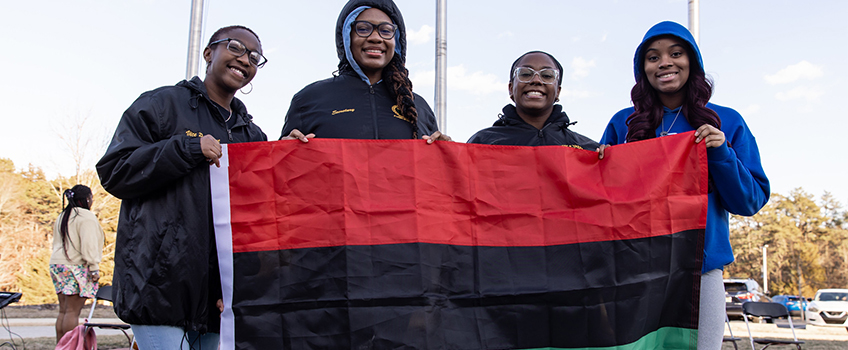
Galloway, N.J. – As the wind whistled through the flags on display in the Arts & Sciences Circle, the briskness of the evening began settling in as the sun made its descent behind the speakers sitting in front of the crowd. Soon, Professor of Music Beverly Vaughn’s gloved fingers masterfully glided along on the keys of her piano.
The Feb. 4 ceremony, a flag raising that kicks off Stockton University’s celebration of Black History Month, included stirring remarks from student leaders on the importance of Black heritage.
Students Elizabeth Macklin and My’Air Henry – president and vice president, respectively, of the Unified Black Students Society (UBSS) – opened the program by reflecting on the current state of the world.
“In today's climate, it is especially clear how important it is to be unified and to recognize that our strength lies in education, commemoration and community,” Macklin said. “As we continue today, please remember the purpose of this flag and how essential it is to maintain solidarity amongst each other, not only during Black History Month but throughout our everyday lives.”
“We know that, beyond this space, there are efforts to silence or erase Black history, but let's be clear: our history is not up for debate,” said Henry. “It is woven into the very fabric of this nation, and no policy can erase the impact we have made and continue to make.”
